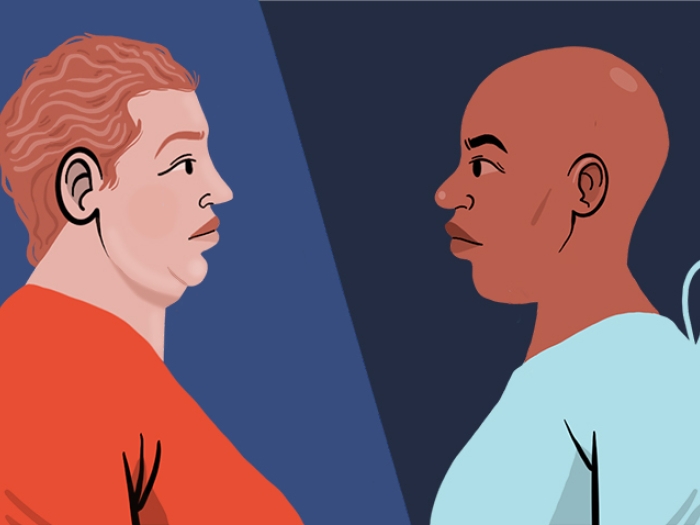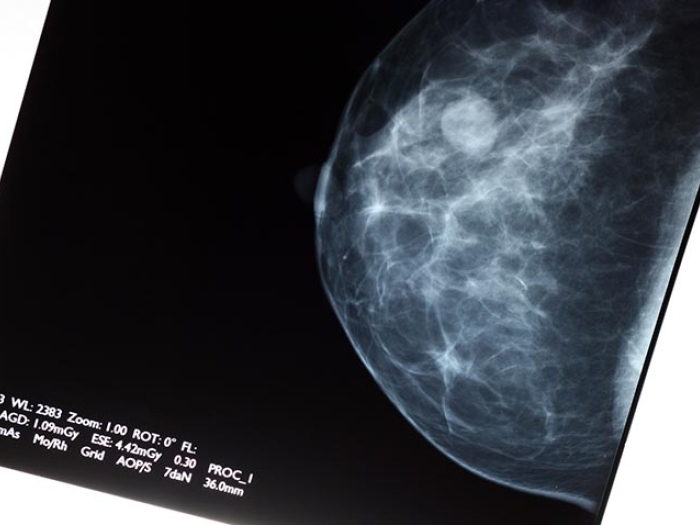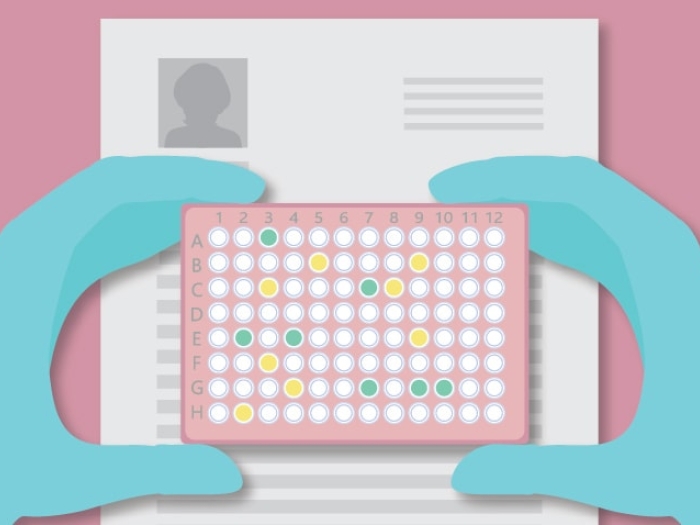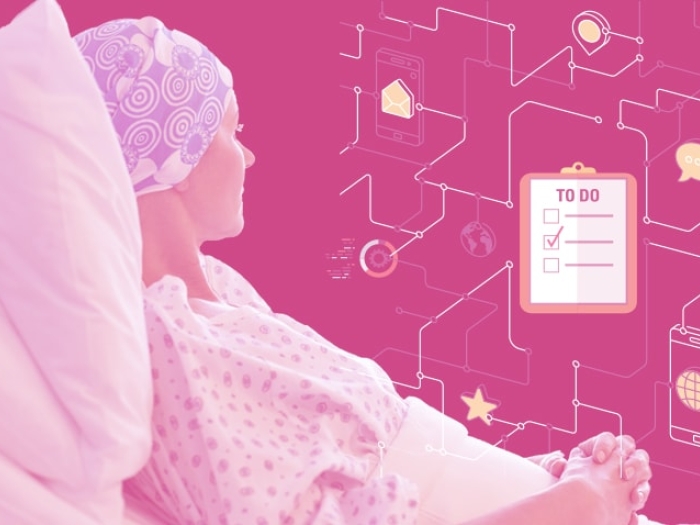In New York state, mandated physician-patient communication helped some cancer patients get a beneficial procedure. But more work is needed to narrow treatment gaps.
1:00 PM
Author |

I'm sick and tired. My breasts are going to get cut off. Yeah, I'm stressed.
Who will cover the costs if there's a complication?
I can't take more time off work. Who's going to take care of my kids?
What exactly is the benefit of another surgery?
Breast reconstruction after mastectomy can be beneficial for many breast cancer patients, and insurance covers the surgery. Still, many minority and low-income women express a variety of reasons for not having the elective procedure.
MORE FROM THE LAB: Subscribe to our weekly newsletter
To combat this, researchers and physicians are continuing to find ways to make sure all women understand their options and are aware of the benefits.
In New York state, all it took was one person to make the difference. Evan Garfein, M.D., a surgeon at the Montefiore Medical Center in New York City, wrote a bill that became law in 2011. It requires physicians to communicate the benefits of breast reconstruction to all mastectomy patients.
In a retrospective study of New York state data published in JAMA Surgery, researchers at Michigan Medicine reported an increase in the number of reconstructive surgeries performed post-mastectomy on women of most ethnic groups a year after the law took effect.
The exception: African-Americans.
Between Hispanics and whites, the reduction in disparity was 41 percent. Among other minorities and whites, the reduction was 52 percent.
But African-Americans had the lowest number of reconstructive surgeries immediately after mastectomy. In other words, between African-Americans and whites there was only a 6 percent reduction in disparity.
"Even with only one year of mandated physician-patient communication about post-mastectomy breast reconstruction, there was reduced disparity between whites and other races. That's a short time. It shows that physician-patient communication really does matter," says Elham Mahmoudi, Ph.D., lead investigator of the study and assistant professor of family medicine at Michigan Medicine.
"The research shows that when a medical procedure is recommended by physicians and made available by insurance, Hispanics and other minorities usually take advantage of it. But it's not the same with African-Americans," she says. "I see a pattern here."
Other studies by Mahmoudi and different researchers had similar findings. "When medical options were made available to African-Americans, they were not always utilized," says Mahmoudi.
Understanding the data
The current research involved data from 2008 to 2011 and included 42,346 women: 65.3 percent white, 12.7 percent Hispanic, 9.4 percent African-American and 12.6 percent other minorities. The average age was 53.
SEE ALSO: Choosing Double Mastectomy, Even If Not Medically Necessary
The study examined only the medical diagnoses and the quantity of reconstruction surgeries post-mastectomy. It did not consider other factors, such as the quality of the communication among physicians and patients or the length or repetition of such discussions. There was also no information about patient preferences or the stage at which the cancer was diagnosed and life expectancy.
"In general, it could be that African-Americans prefer not to have immediate breast reconstruction," says Mahmoudi. Reconstruction may have occurred later rather than directly after the mastectomy, and that would have affected the research findings. In addition, other factors may be involved, such as the potential for African-Americans to have keloid scarring after surgery or data showing that African-Americans visit physicians less often than other minorities. For some people, mistrust in physicians or medical procedures may be an issue.
At the University of Michigan and elsewhere, researchers are looking into obvious and innovative factors that could provide more information about physician-patient communication. Those factors might include the number of questions the patient asks, eye contact and body language. Researchers need to ask women why they did not have immediate reconstructive surgery, says Mahmoudi.
"By continuing to research and determine other factors that affect minority populations, it's our hope that more women from various backgrounds and economic groups will take advantage of the resources and medical care that is available to them," she says.
She also presents a call to action, inquiring: "Who will author the next state law to increase awareness about the advantages and availability of post-mastectomy breast reconstruction?"

Explore a variety of health care news & stories by visiting the Health Lab home page for more articles.

Department of Communication at Michigan Medicine
Want top health & research news weekly? Sign up for Health Lab’s newsletters today!





